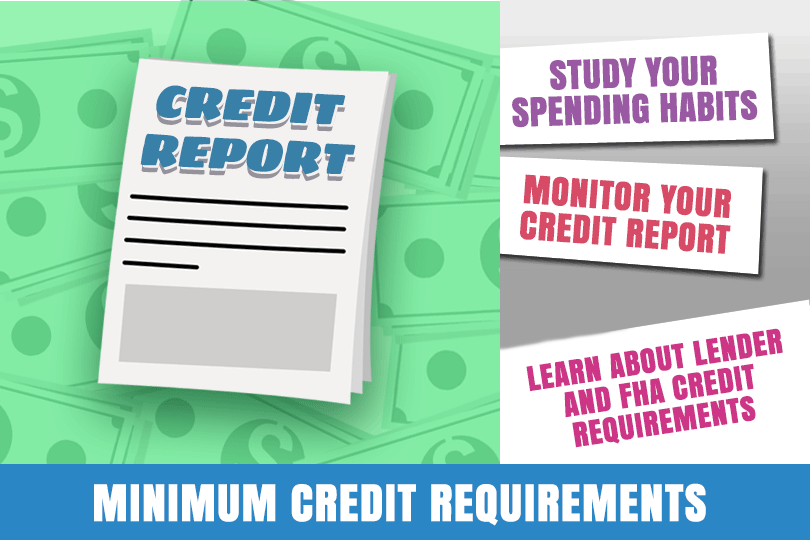FHA Loan Minimum Credit Score Tips

But on paper, FHA loan minimums for credit scores start at 580 for the lowest down payment. Its true that the lender may require a higher score, but for FHA mortgages, 580 is the bare minimum FICO score you can have and still be considered for maximum financing.
It is common for people looking for a home loan to worry that their credit scores might not be good enough to get the best deal possible.
What kind of credit score advice should you take ahead of your home loan? There are some simple tricks you can do in the earliest stages of your home loan journey that can help.
Check Your Credit Report Often
This is the kind of advice you get from any credit repair article. What’s not so obvious? The information that your credit report (and credit monitoring services) can tell you about who else might be using your personal data and whether that use is hurting your credit yet.
Borrowers want to check their credit score and credit report for three basic reasons--to learn what the report says, to see what areas might need to be disputed due to inaccuracies or old data, and also to look for evidence of identity theft. It’s not just whether or not your FICO score meets home loan minimums!
And some identity theft issues might not show up on your credit report right away. Some credit reporting agencies now offer something called a “dark web scan” to see if your private information is circulating on the internet in places where thieves and hackers pay money to obtain such data.
This can be an early warning to borrowers to take steps to limit the damage. And that can help you later on when you are ready to apply for a loan--you’ll already have taken steps to stop or dispute fraudulent activity in your name that could wind up in your credit report.
Study Your Own Credit And Spending Habits
Some financial institutions now offer spending trackers and other online tools to help you monitor your finances. This can be a very useful thing to do if you are trying to cut your debt ratio.
Some people aren’t really aware of how much they spend (especially on credit cards) for simple, everyday things like coffee shop indulgences or fast food. These spending trackers can help you identify problem areas that might be associated with your credit card utilization habits and other issues that may affect your FICO scores.
Use Credit Monitoring
A credit monitoring service can help you more efficiently track and monitor your credit reports. Using such a service reduces your need to spend time looking over the reports, searching for errors or identity theft evidence. You can set up alerts with these services to help you stay informed and maximize your time doing other work on your loan and your finances.
Its useful to shop around for the right service provider--not all offer the same options, prices, or subscription plans. Compare prices, plans, and providers--you’ll be glad you did.
------------------------------
Learn About the Path to Homeownership
Take the guesswork out of buying and owning a home. Once you know where you want to go, we'll get you there in 9 steps.
Step 1: How Much Can You Afford?
Step 2: Know Your Homebuyer Rights
Step 3: Basic Mortgage Terminology
Step 4: Shopping for a Mortgage
Step 5: Shopping for Your Home
Step 6: Making an Offer to the Seller
Step 7: Getting a Home Inspection
Step 8: Homeowner's Insurance
Step 9: What to Expect at Closing

Do you know what's on your credit report?
Learn what your score means.







